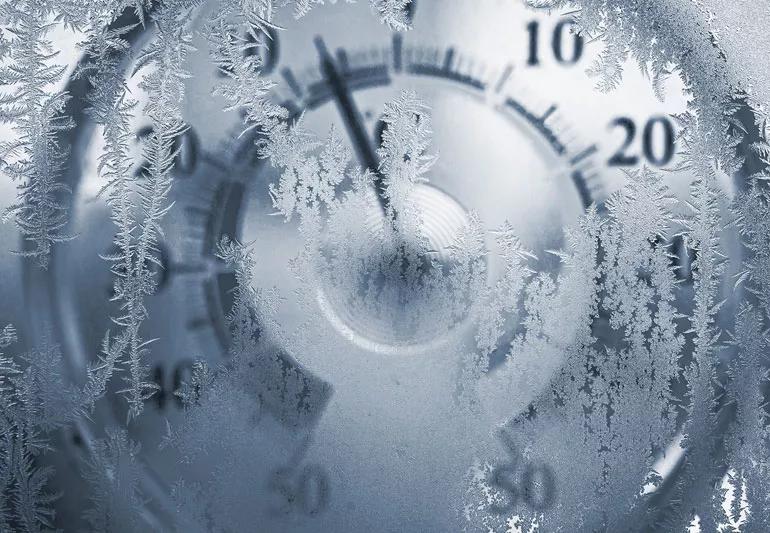What to do if cold urticaria gives you hives

Image content: This image is available to view online.
View image online (https://assets.clevelandclinic.org/transform/c964a42d-0ca3-4abc-8e22-0b85c01e9220/allergicCold-131473617-770x553-1_jpg)
thermometer through frosty window
For many, those frigid, cool-you-to-the-bone temperatures get old after a while. You might even start joking around that you’re allergic to the cold and can’t wait for warm temperatures to begin.
Advertisement
Cleveland Clinic is a non-profit academic medical center. Advertising on our site helps support our mission. We do not endorse non-Cleveland Clinic products or services. Policy
All jokes aside, some people really do have an allergy to cold temperatures.
“If someone has a cold allergy, every time they go out in certain temperatures, they’ll break out in hives in any of the areas that’s exposed to the temperatures,” says allergist Sandra Hong, MD. “If there are low wind chill factors, they definitely can be affected by that.”
This cold allergy, also called cold urticaria, often causes an itchy rash, redness, swelling and hives on areas of uncovered skin that have contact with cold air, water or cold surfaces. The reaction usually occurs within five to 10 minutes after exposure to the cold and can last for about one to two hours, according to the National Organization for Rare Disorders.
Females are more likely to have it than males, and in some cases, a cold allergy often goes away after a few years. Severe cases – such as when somebody swims in icy water – can lead to fainting, shock and even death.
“If individuals are out for long periods of time, or they’re in very cold temperatures or have a lot of skin that’s exposed, they can actually have these allergic reactions,” says Dr. Hong. “They can be life-threatening, too.”
If you see your allergist or dermatologist, they will be able to test your skin to see if you have a reaction. The American Academy of Dermatology Association notes that a dermatologist might place a plastic bag with ice cubes on your forearm to see how your skin reacts to the cold.
Advertisement
A true sensitivity to cold is rare, but most cases are found in colder climates. Although children and young people are typical sufferers, just about anybody can develop the condition.
“Anyone can have it at any point in their life,” says Dr. Hong. “The good news is that a majority of people who have it will see it will go away in five years.”
If you have a cold allergy, you can take an antihistamine to relieve your symptoms. Remember to also carry epinephrine in case of an emergency, which you inject into your outer thigh. Be sure to ask your allergist or immunologist which medication would work best for you.
The best way to make sure you don’t suffer from a cold allergy is to try to avoid cold temperatures altogether. However, if you live in the colder parts of the world, you know how difficult it is to completely avoid plummeting temperatures. If you have to venture outside, remember to bundle up completely with a hat, gloves, scarf, boots and layers of clothing to make sure you’re kept warm.
Advertisement

Sign up for our Health Essentials emails for expert guidance on nutrition, fitness, sleep, skin care and more.
Learn more about our editorial process.
Advertisement
Most antihistamines, like Zyrtec, are OK, but avoid decongestants for at least the first trimester
You can now get lifesaving epinephrine in a nasal spray and prefilled syringes
Drowsiness is a side effect of inflammation, disrupted sleep and, sometimes, your allergy medicine
If you’re sensitive to aspirin or other salicylates, limiting exposure is the best remedy
Mold exposure can cause allergic reactions, asthma and skin rashes
If allergies have you coughing and sniffling all night, try showering before bed, keeping the windows closed and propping your head up
If allergies make your mornings a slog, consider closing the windows and showering at night
When the trees start to bloom, your allergies can come to life — medications, closing the windows and keeping clean can help
Prioritize your health by managing stress, strengthening your social connections and getting quality sleep
Bolsters, blankets, pillows and blocks can offer extra support, stability and comfort
Allergies, postnasal drip, asthma or reflux could be to blame for a cough that won’t quit